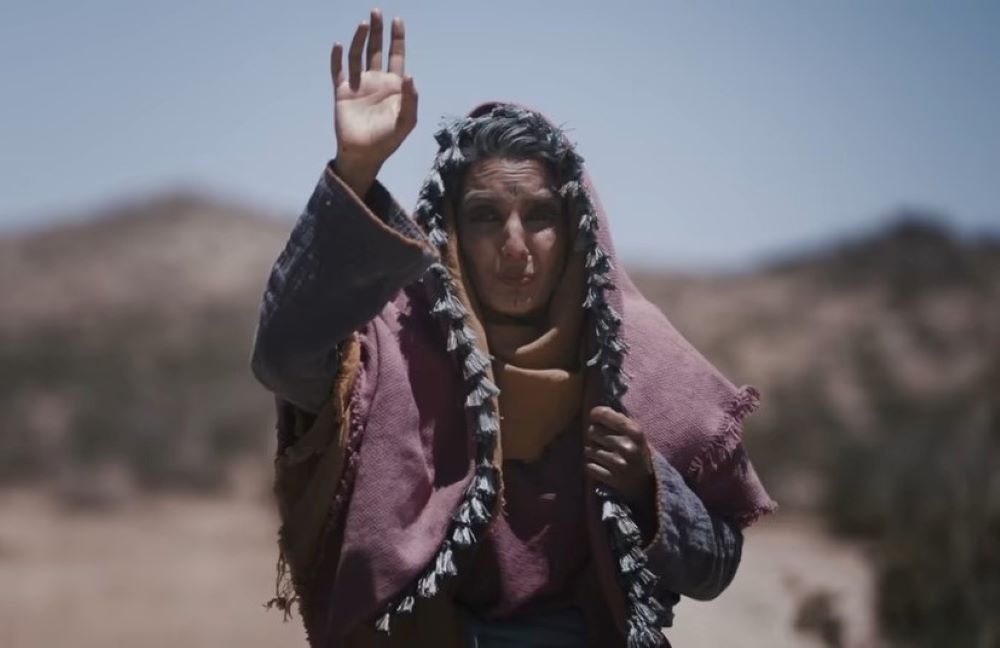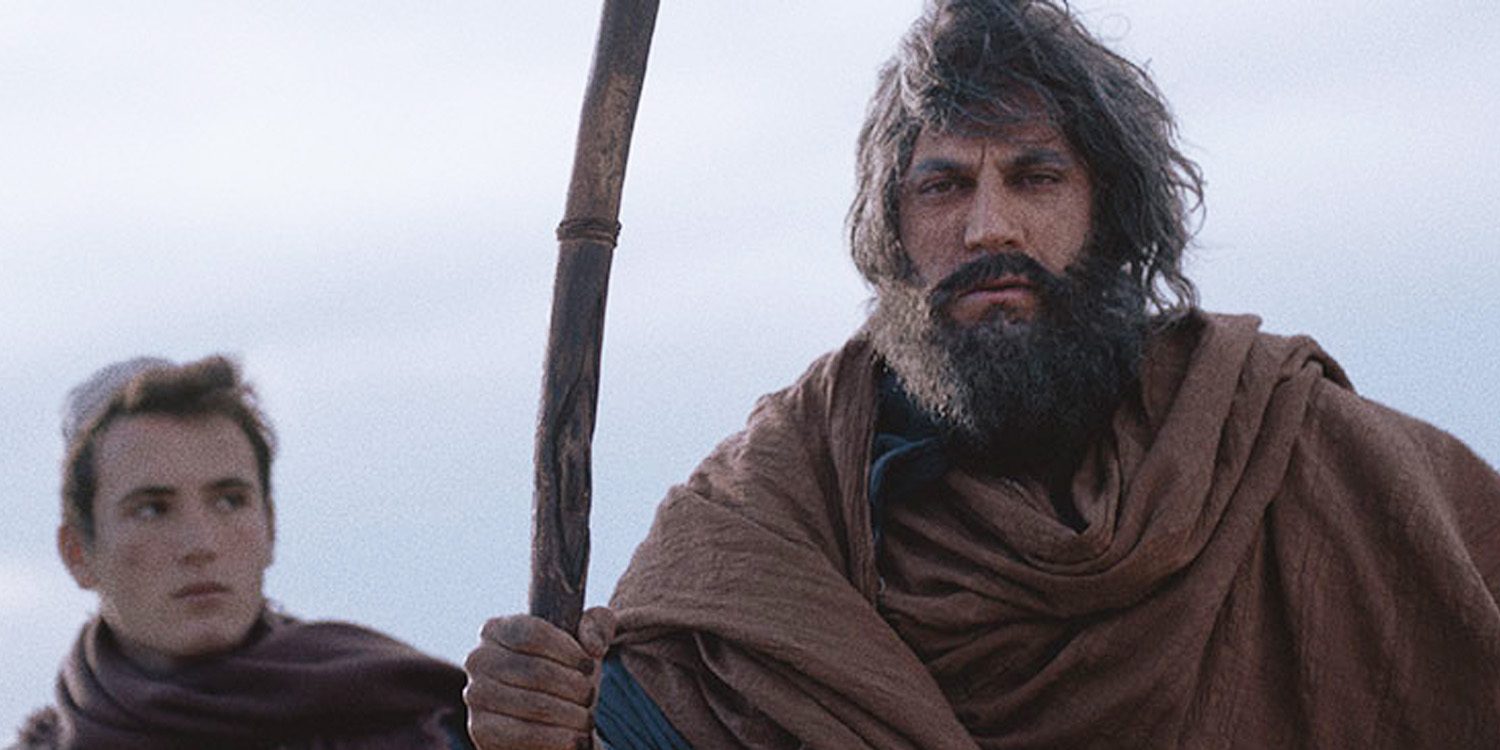‘His Only Son’ unfolds in 2000 B.C. in Canaan, where Abraham resides with his wife Sarah, and their sole son, Isaac. God summons Abraham to sacrifice Isaac on the mountain of Moriah. Without divulging much to Sarah or Isaac, Abraham embarks on the journey with Isaac and their two servants, Kelzar and Eshcolam. Along the way, Abraham reflects on Isaac’s birth and recounts various events from his life, elucidating the concept of sacrifice and God’s true plan to his fellow travelers.
Under the direction of David Helling, the film becomes a profound philosophical discourse, delving into religion and the essence of sacrifice and its origins. It sensitively portrays the anguish of a father torn between saving his son’s life and his unwavering devotion to God, believing he would sacrifice everything for Him if necessary. The attention-grabbing plotline raises curiosity about the origin of the story and its links to real life.
Where Does His Only Son Get Its Inspiration From?
The narrative of ‘His Only Son’ draws inspiration from Genesis 22 of the Old Testament in the Bible. In this biblical account, God tests Abraham’s faith by commanding him to sacrifice his only son, Isaac, on Mount Moriah. Abraham, despite his deep love for Isaac, demonstrates unwavering devotion to God and sets out on the journey with his son. However, at the critical moment, God provides a ram for sacrifice, sparing Isaac’s life. This story is a poignant testament to Abraham’s faith and God’s ultimate benevolence, forming an important part of religious teachings and reflections on sacrifice and devotion.

The film draws from various Old Testament narratives, including Abraham’s encounters with God (Genesis 12, 15, 17), Sarah’s infertility the decision to produce an heir with Hagar (Genesis 16), and the birth of Isaac (Genesis 21). The campfire conversations with Kelzar and Eshcolam reflect biblical themes, while the story of The Soldiers of Abimelech finds its origin in Judges 9. These diverse biblical references from the Old Testament are woven together to create this beautiful film.
David Helling, the writer and director of ‘His Only Son,’ hails from Louisiana and served in the United States Marine Corps for five years, including a deployment in Operation Iraqi Freedom. During his time in Iraq, Helling began reading the Bible, fostering a deep appreciation and fascination for the scripture. The film marks his directorial debut, and he has announced plans for a series of films based on the teachings of the Old Testament. Helling’s personal journey and connection with the Bible contribute to the unique and refreshing perspective he brings to his cinematic explorations.
Talking about the choice of his subject and the choice of this story, Helling remarked, “With this film, I endeavor to answer the critics as well as the confused by exploring the meaning and purpose of God’s testing of Abraham, when He asked him to do the unthinkable 4000 years ago. I look to shine a light on the plan the Lord had in place from the beginning. For us now, the days seem darker than many of us can remember, and at a time when humanity is so downcast, we are in dire need of inspiration to lift us up again. May this film serve as a reminder that in the hard times, in the hurt, in the sadness, and in the loss, there is a plan, and there is a purpose for it all.”
The entirety of “His Only Son” unfolds against the raw, untamed backdrop of California’s outdoors, a choice that goes beyond mere aesthetics, infusing the film with an authenticity that resonates deeply. Filming against the backdrop of nature allows the story to unfold organically, mirroring the unfiltered essence of the biblical universe it seeks to portray. The outdoor setting becomes a canvas where the elements themselves contribute to the backdrop and it becomes not just a stage but a participant in the storytelling, enhancing the film’s ability to transport audiences into the heart of the ancient holy land.
The timeless resonance of mythological and biblical inferences is a testament to the enduring power of faith. These stories, drawn from cultural and religious traditions, possess a remarkable ability to transcend epochs, connecting with individuals across diverse backgrounds. Rooted in ancient scriptures or cultural lore, they are not mere tales but living expressions of collective belief. The faith upheld by communities and believers breathes life into these narratives, transforming them into dynamic sources of inspiration. These stories offer profound insights that bridge the gaps between generations and cultures, demonstrating the remarkable continuity of faith and its capacity to imbue stories with enduring vitality.
Read More: Best Christian Movies on Netflix


You must be logged in to post a comment.